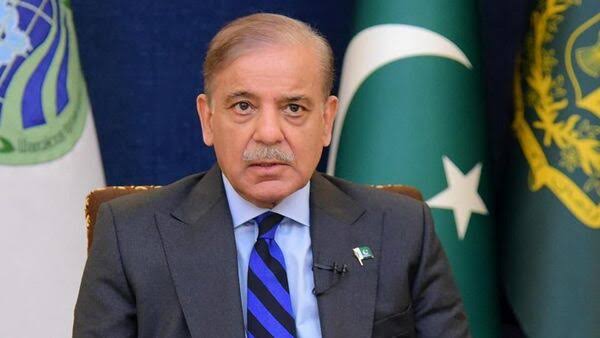Shehbaz Sharif secures second term as Pakistan’s prime minister

Shehbaz Sharif has been voted in as Pakistan’s prime minister for the second time, orchestrating a coalition government that sidelines supporters of imprisoned opposition leader Imran Khan. The decision was reached on Sunday, following three weeks of scrutiny after the national elections, which were tainted by widespread accusations of electoral misconduct.
The newly sworn-in members of the National Assembly convened to elect Sharif, who secured the position with 201 votes. The announcement was made by the recently appointed speaker of the National Assembly, Sardar Ayaz Sadiq. In the competition for the position, Omar Ayub Khan emerged as Sharif’s main rival, backed by MPs loyal to Imran Khan, garnering 92 votes.
Sharif’s Pakistan Muslim League-Nawaz (PML-N) party formed an alliance with longstanding adversaries, the Pakistan Peoples Party (PPP), along with several smaller factions, to block the candidates supported by Imran Khan. In exchange for their support, the PPP, a dynastic party led by the family of the late Benazir Bhutto, secured the commitment of Asif Ali Zardari, Bhutto’s widower, to the presidency.

Former Prime Minister Imran Khan, who was incarcerated prior to the February 8 elections and barred from running, witnessed his Pakistan Tehreek-e-Insaf (PTI) party face a wave of arrests and censorship. Despite these challenges, PTI candidates managed to secure a significant number of seats, although they fell short of the majority required to form a government, paving the way for Sharif’s return to power.
This marks Shehbaz Sharif’s second stint as prime minister, reminiscent of his previous tenure in 2022 when he led a similar coalition that ousted Imran Khan. Like before, Sharif will confront a convergence of three critical issues plaguing the nation: economic instability, heightened security concerns, and a looming crisis of legitimacy exacerbated by allegations of electoral irregularities.
During his previous term, Pakistan teetered on the brink of economic collapse, necessitating a last-minute bailout from the International Monetary Fund (IMF). Inflation rates remain alarmingly high, compelling Sharif to navigate the unpopular course of austerity measures demanded by international creditors. Additionally, security challenges have intensified, with Islamabad attributing a surge in attacks to the resurgence of the Taliban in neighboring Afghanistan.
Furthermore, the legitimacy of the electoral process has been called into question, with PTI alleging electoral malpractice, including the shutdown of mobile internet services and significant delays in the release of results. The pervasive influence of Pakistan’s powerful military establishment has loomed over the elections, backing the PML-N and targeting Imran Khan and his supporters with a crackdown.
Despite returning to power, PML-N’s reputation has suffered due to the necessity of brokering a broad coalition to govern. While Shehbaz’s brother, Nawaz Sharif, a three-time prime minister, was initially anticipated to lead, Shehbaz assumed the role due to the unexpected election outcome. Regarded as a pragmatic mediator and a preferred choice of the military, Shehbaz Sharif faces formidable challenges as he takes the helm once again in Islamabad.














